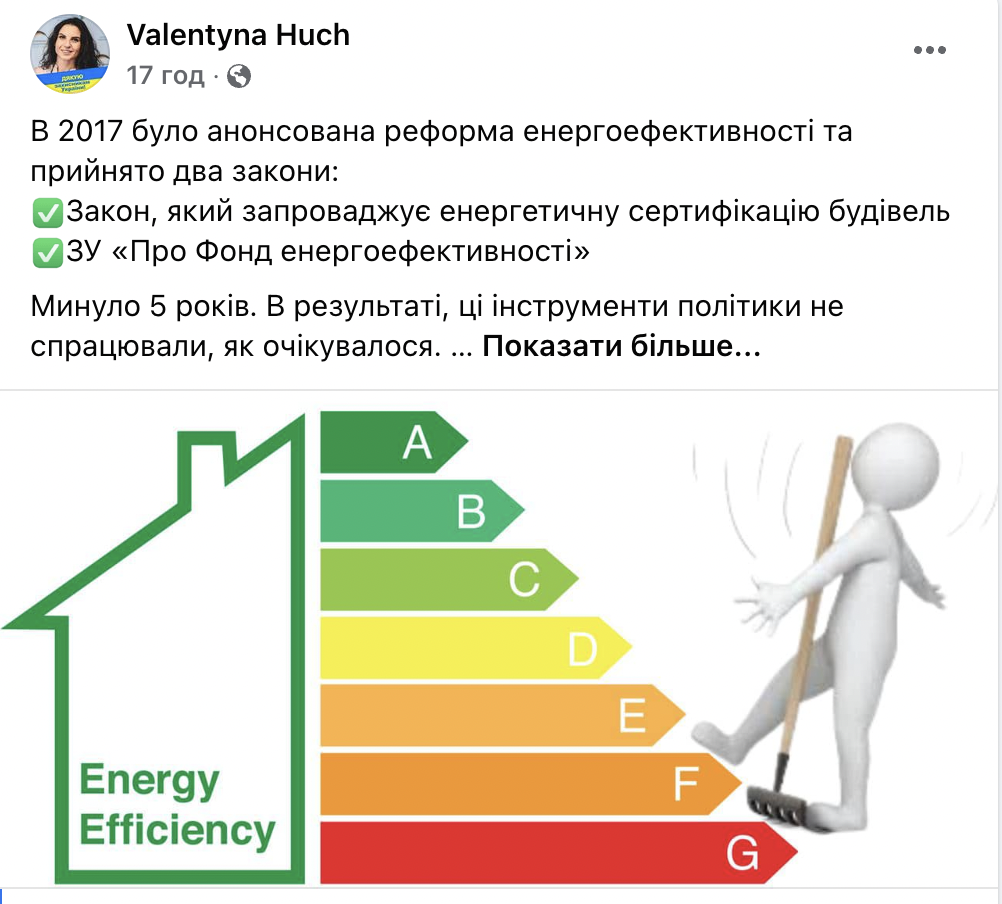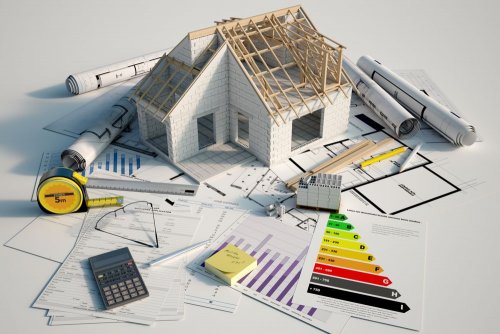On Saturday, July 9, the Verkhovna Rada adopted draft law No. 6485 "On amendments to certain laws of Ukraine on creating conditions for the implementation of complex thermal modernization of buildings."
The law makes changes to the energy certification of buildings and the work of the Energy Efficiency Fund, reports Valentina Huch from the European-Ukrainian Energy Agency (EUEA) on Facebook.
She explained that in 5 years, the law that introduced the energy certification of buildings and the Energy Efficiency Fund did not work as expected. Changes to the laws were developed in the Ministry of Regions.
From now, owners of buildings affected by the war will be able to receive funds for building repairs from the Energy Efficiency Fund. The fund will also reimburse non-energy-efficient measures for buildings during thermal modernization.
Under the new law, association of co-owners of an apartment building will be able to receive grants in advance, and not only after the fact. In addition, legal disagreements regarding the salary of a member of the Supervisory Board from donors and other legislative gaps have been eliminated.
Changes introduced by the new law:
- An expanded range of buildings for which energy certification is mandatory, in particular for communally owned buildings (kindergartens, schools, administrative buildings, etc.).
- The methodology for calculating energy efficiency (EE) and the Procedure for energy certification and energy audit of buildings will be in one document.
- The energy efficiency class of buildings will take primary energy into account.
- Not all major renovations will require compliance with minimum EE requirements.
- The Foundation will not require a report on the survey of engineering systems after the implementation of thermal modernization.
- The National Database of Buildings will be created as part of the EDESB.
Also, within the framework of the law, a strategy for thermal modernization of buildings will be developed, and state bodies will be obliged to thermally modernize 1% of the heating area of their own buildings every year.
However, the new law contains certain risks. Thus, the energy certification of the building will be carried out before the start of work on improving energy efficiency, if it is money from state support. Also, at the stage of design and estimate documentation, it is not necessary to develop an energy certificate, but only to calculate indicators and EE class.
Draft Law No. 6485 re-united the energy audit of buildings with energy certification, which was separated a year ago by the adoption of the law "On Energy Efficiency".
"Confirmation of qualifications of energy auditors will be carried out by qualification centers accredited by the National Qualifications Agency. Also, specialists who are already developing building certificates and those specialists who have not done any will undergo qualification confirmation under the same conditions," said Huch.
She also noted that there will be two systems (two orders) of training energy auditors of buildings:
- Article 9 of the Law on energy efficiency of buildings;
- Article 11 of the Law on energy efficiency.
There will be two laws introducing the energy management system for self-governing municipalities, state enterprises, and state bodies.
"If in the first law "On energy efficiency" local government organizations are not regulated in terms of the procedure for implementing energy management and its functioning, then in draft law No. 6485, on the contrary, everything is regulated in order," she emphasized.
Huch also added that state-owned enterprises are implementing energy management systems in buildings, and production processes within the framework of industrial energy management systems have remained behind "brackets", which completely contradicts ISO 50001. The obligation that public authorities implement the energy management system is duplicated in two laws and will have 2 orders.
Changes in the legislation regulate certain technical issues of energy certification of buildings, but do not introduce conceptual changes that would allow energy certification to influence the real estate market in the country, as it is introduced in France or Germany.
"The main goal of the system of energy certification of buildings is to become an influential factor during the choice of buying, renting buildings and modernizing the building. Unfortunately, in Ukraine, the energy certificate is and will remain invisible for building owners," she said.

We will remind on May 31, Verkhovna Rada of Ukraine adopted draft law No. 6485 as the basis in the first reading on creating conditions for the introduction of complex thermal modernization of buildings.
As EcoPolitic previously reported, in the Ternopil region insulated a 130-year-old house, which was almost in a state of disrepair.





